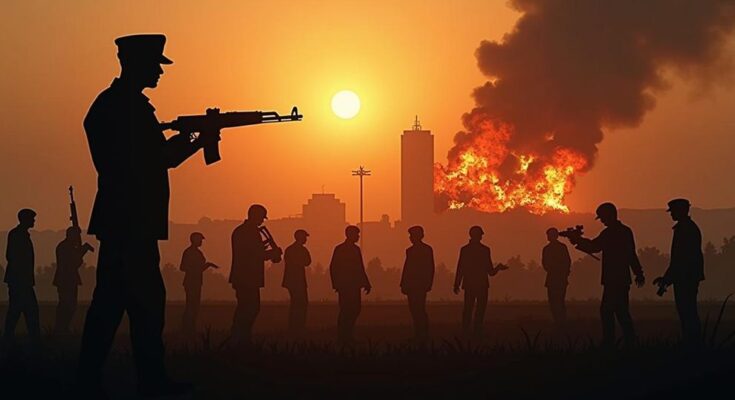The United Arab Emirates has accused the Sudanese army of bombing its ambassador’s residence in Khartoum, leading to significant damage. The UAE plans to file a formal complaint with the United Nations and regional organizations, viewing the incident as a violation of diplomatic premises. Relations between the two countries have deteriorated since the onset of conflict in 2023, with each side making serious allegations against the other regarding support for paramilitary forces and attacks on embassies.
On September 29, 2024, the United Arab Emirates (UAE) formally accused the Sudanese army of carrying out an airstrike that targeted the residence of its ambassador in Khartoum, resulting in substantial damage to the premises. The UAE’s Ministry of Foreign Affairs announced its intention to lodge a formal complaint with the United Nations as well as regional organizations, labeling the incident as a serious violation of diplomatic inviolability principles. Although the specific date of the bombing was not disclosed, the statement affirmed that the UAE would protest this act through official communications to the League of Arab States and the African Union, emphasizing the need to uphold international diplomatic standards. Since the onset of the conflict in April 2023 between the Sudanese army and the paramilitary Rapid Support Forces (RSF), foreign diplomatic missions, including that of the UAE, have vacated Khartoum, relocating to Port Sudan along the coast. The Sudanese army is currently engaged in concerted military action against RSF positions in the capital, with allegations arising that the RSF engaged in looting and violent acts against foreign embassies. Relations between the UAE and Sudan have soured significantly amid these tensions, with the Sudanese army accusing the UAE of providing support to the RSF, a claim that the UAE has vehemently refuted. Furthermore, the UAE’s ambassador to Sudan evacuated shortly after hostilities began, though the UAE embassy continues to operate from Port Sudan. Complicating matters, Sudan has presented a complaint to the UN Security Council, asserting it possesses evidence of UAE arms supplies to the RSF through Chad, a charge that UAE officials have characterized as “utterly false and baseless.” In retaliation for the ongoing hostilities and accusations, both nations have expelled each other’s diplomats earlier this year.
The recent accusations from the UAE toward the Sudanese army reflect the deteriorating diplomatic relations between the two nations, which have become increasingly strained since the outbreak of violent conflict in Sudan in 2023. Following the military confrontation between the Sudanese army and the RSF, all foreign embassies were compelled to relocate due to safety concerns. The UAE, which has faced allegations of supporting the RSF, has consistently denied such claims, while the Sudanese army contends that the RSF has targeted diplomatic facilities. This ongoing conflict underscores the complexities of international diplomacy in conflict zones, particularly regarding the sanctity of diplomatic missions and the implications of military actions against them.
In conclusion, the UAE’s accusations against the Sudanese army regarding the bombing of its ambassador’s residence signify a serious escalation in their diplomatic rift. With both nations exchanging allegations of military support and retaliation, the situation raises significant concerns about the protection of diplomatic entities amidst warfare. The UAE’s plan to formally address these violations at international forums indicates the gravity of the situation, while the Sudanese army continues to contend with its own accusations of looting and attacking diplomatic sites.
Original Source: sudantribune.com




